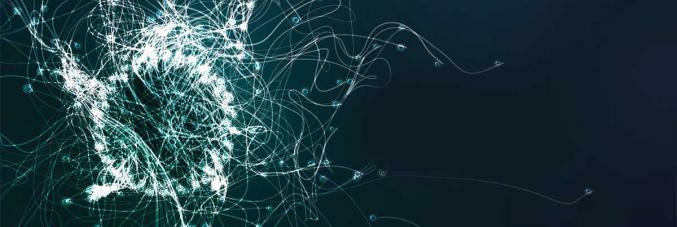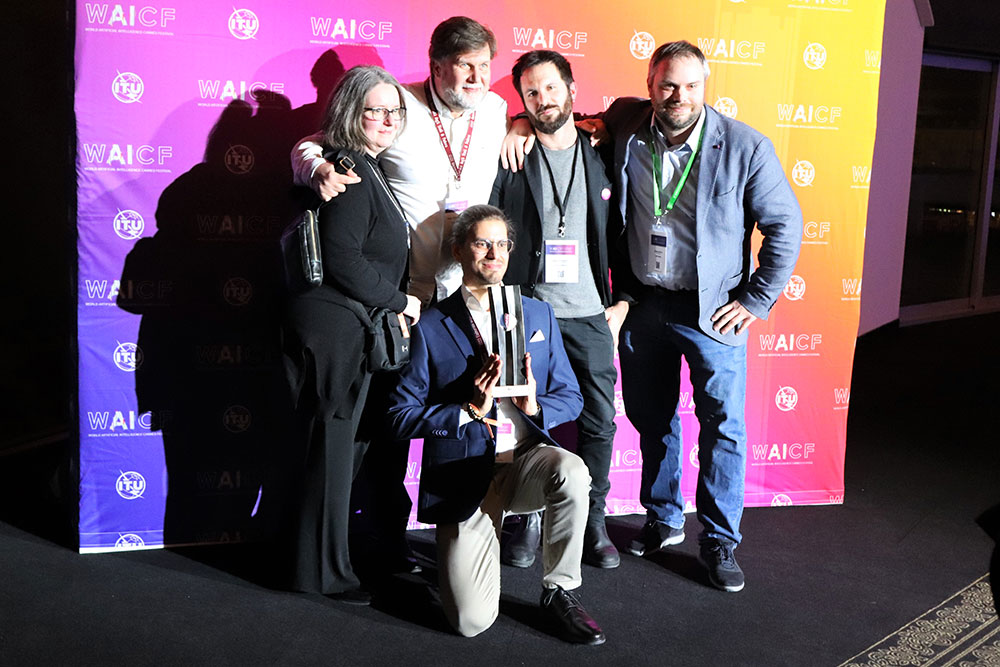
Artificial Intelligence: Padua’s Audio Innova triumphs at Cannes Neurons
10.02.2023
Organised by the World AI Cannes Festival, the Cannes Neurons awards ceremony is a victory for Italy (and for Padua). Held from 9 to 11 February and now in its second year, WAICF is the most important artificial intelligence festival in Europe. The Cannes Neurons awards ceremony celebrates the most innovative Artificial Intelligence projects that have a positive impact on society or the planet by rethinking standards. The UniPd Audio Innova spin-off established itself in the "Creative #AI" category (one of the three present together with "Inclusive AI" and "Sustainable AI").
The spin-off project focuses on the conservation of audio documents. Found in the prestigious Palais des Festival, known for the famous film festival, the UniPd spin-off established itself on the formidable Chinese Unitree Robotics rival with their iconic robot dogs, considered a festival favourite. In the end, however, the audience, made up mainly of researchers, experts and entrepreneurs in the high-tech sector, gave the Italians a veritable plebiscite in online voting: after the "battle" in which representatives of the two competitors each had three minutes, to present their project, 83.1% of the votes went to the team from Padua, registering the highest vote of the whole evening. Palpable - and understandable - the satisfaction of the UniPd team (made up of Sergio Canazza Targon, Nadir Dalla Pozza, Michele Patella, Cristina Paulon and Alessandro Russo) for having established themselves in an international competition that rewards the most innovative artificial intelligence projects in the world, also taking into account their impact on society or the planet. In particular, the spinoff of the University of Padua Audio Innova srl, founded by Sergio Canazza, professor of the Department of Information Engineering (DEI), was awarded for a project that aims to use AI to protect musical cultural heritage: "Yesterday sounds tomorrow: AI for preserving musical creativity.” If in recent years artificial intelligence has been used massively to improve the quality of audio recordings, for example by removing background noise, or to improve their quality and post-production, Audio Innova has managed to employ AI for long-term storage of magnetic tapes, speech recordings and other endangered audio materials. Specifically, the project uses AI in the development of search techniques on the audio, photos and videos of the original analogue support, which allow the identification and grouping of sound documents based on the metadata contents. A technique that will help conservators and musicologists find rare and valuable audio materials in seconds and has already been approved as an international MPAI and IEEE music standard.
“We are particularly happy with tonight's result, also because we think that AI should be for everyone and our project seeks to bring the cultural heritage of the past into the future to share” was Sergio Canazza's immediate comment, sole director of Audio Innova. "I think the public was struck by our focus on culture, to which not much attention is often paid in the context of AI compared to other topics", explained Nadir Dalla Pozza, who had the task of promoting on stage the Audio Innova project. An acknowledgement that also rewards a tradition that has been present for decades in the University of Padua and which is today represented above all by the CSC - Center for Computational Sonology, which collects the legacy of the studies begun in 1959 by Giovanni Battista Debiasi and Teresa Rampazzi, pioneers of music informatics research.




